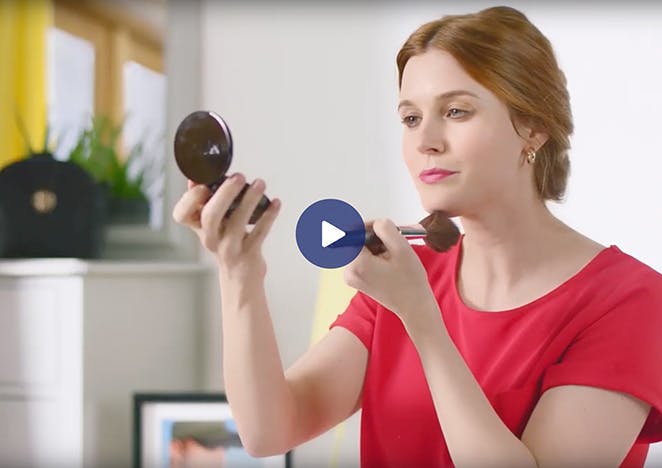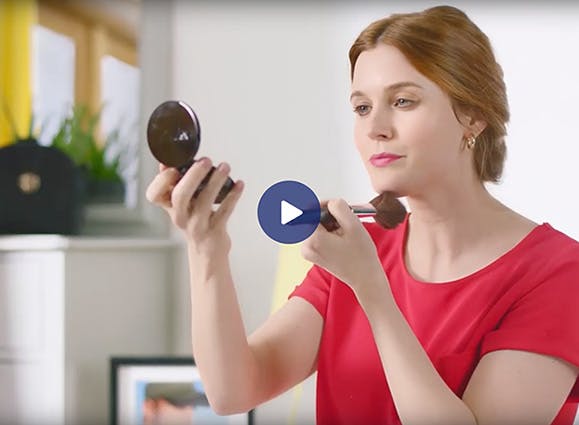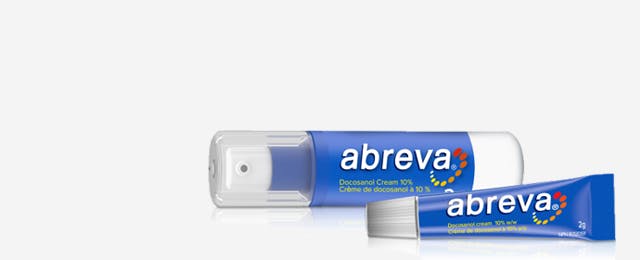UNDERSTANDING COLD SORES
Find answers to frequently asked questions about cold sore causes, symptoms, treatment and more.
-
What are cold sores caused by?
- Cold sores, also known as fever blisters, are caused by the herpes simplex virus one (HSV-1).
- HSV-1, the cold sore virus is very contagious and spreads through skin-to-skin contact, like kissing.
- Cold sores start by sneaking into the body through a mucous membrane or damaged skin, and can stay dormant inside the body until something triggers it, leading to an outbreak.
- Most common cold sore triggers include: fatigue, stress, fever, colds or flu.
- To shorten healing time, you can use Abreva Cold Sore Cream, an effective medicine that starts to work to block the virus from spreading.


VIDEO FAQS
see the answer to this question
-
What are the stages of a cold sore?
There are 5 stages of a cold sore:
- Tingle Stage:
The first sign of a cold sore is tingling in your lips. That itchy, burning sensation as the infected area becomes red and swollen. - Blister Stage:
At this stage you’ll probably notice a group of small, fluid-filled lumps that may multiply and grow. Do not pick or pop the blisters to stop a cold sore from spreading further. - Ulcer Stage:
Then comes the ulcer stage, which can be painful as the blisters burst and ulcers develop. - Scabbing stage:
The cold sore scab stage is when your cold sore dries out and forms a scab. It’s important to let the scab fall off naturally—if you peel it off, it may leave a scar. - Healing Stage:
Finally the healing stage has arrived once your cold sore scab comes off. You may notice some flaking and slightly red or pink skin before it fully heals. At this point, your cold sore is no longer contagious.


VIDEO FAQS
see the answer to this question
- Tingle Stage:
-
Do home remedies for cold sores work?
The truth about home cold sore remedies is that they may help alleviate some of the symptoms of a cold sore but they won’t speed healing or get rid of them.
- Lip balms:
may provide temporary relief of pain and itching on the lip but will not shorten the healing time of a cold sore. - Lemon juice:
may fight off bacteria, but it won’t prevent a cold sore or reduce the pain. - Alcohol, witch hazel, vanilla extract or tea tree oil:
might prevent bacterial infection, but they aren’t clinically proven to get rid of cold sores. - Tea bags or ice:
may provide short term relief but won’t do anything more. - Petroleum jelly:
works well to soothe dry, flaking skin but it won’t block the virus.
When it comes to cold sores, trust clinically proven cold sore remedies like Abreva Cold Sore Cream.


VIDEO FAQS
see the answer to this question
- Lip balms:
-
What is oral herpes?
- Oral Herpes also known as Cold sores or fever blisters are caused by the herpes simplex virus one (HSV-1), the oral form of the virus.
- It’s not the nightmare you may think. In fact, the HSV-1 virus which causes a cold sore is very common. 67% of the population under age 50 has the HSV-1 virus because it is so contagious.¹
- Once you are infected, the Oral Herpes virus never leaves your body. Most people aren’t exactly sure when they first encountered the virus. It’s usually contracted in early childhood, when it may not appear as a visible cold sore.
- Oral Herpes or Cold sores are contagious and once someone is infected, they have it for life. However, only 1/3 people will experience regular outbreaks.
- More information on the stages of an oral herpes or cold sore outbreak or the triggers.
1. Herpes simplex virus. World Health Organization. (2016, January). Retrieved April 27th, 2016, from http://www.who.int/mediacentre/factsheets/fs400/en/
Fever Blisters and Canker Sores. National Institute of Dental and Craniofacial Research. (1992, July). Retrieved April 25, 2016, from http://publications.usa.gov/epublications/fever-blister/fever-canker.html.


VIDEO FAQS
see the answer to this question
-
How do I know if it’s a cold sore or a pimple?
Some find it hard to tell the difference between a cold sore and a pimple. But there are differences between them:
- A pimple can appear anywhere on your face and lips, typically with a white or blackhead. Cold sores form liquid-filled blisters.
- Mostly cold sores appear in one area each time and mainly on the lips, not the face.
- Can be painful to the touch but the sensation is different than a cold sore.
- Cold sores have a very distinctive itchy, burning, or tingling sensation when they appear.
- Cold sores form liquid-filled blisters.
- If you’re not sure, look for these symptoms and ask a pharmacist.
- If it’s a cold sore, use a cold sore treatment like Abreva which is clinically proven to shorten healing time.


VIDEO FAQS
see the answer to this question
-
What are the types of herpes?
There are 80 known herpes viruses, and at least eight of them are known to cause infections in humans.¹ Three common herpes viruses are:
- HSV-1, the cold sore virus also known as oral herpes or fever blisters, is spread through contact with a person’s saliva or genital secretion. In rare cases, it may also cause genital herpes.
- HSV-2, the genital herpes virus is usually transmitted through genital secretion and sometimes saliva and is a sexually transmitted infection (STI).
- HSV-3 also called Varicella-Zoster Virus, which causes chicken pox. Most people only get HSV-3 once, but when the virus reactivates, it can lead to a more severe disease called Shingles.
Most herpes viruses are transmitted through direct contact with saliva or genital secretion.
1. Stoopler ET. Oral herpetic infections (HSV 1-8). Dent Clin N Am 2005. 49: 15-29>


VIDEO FAQS
see the answer to this question
-
What’s the difference between a fever blister vs cold sore?
- Fever blisters and cold sores are exactly the same thing.
- They’re called fever blisters and cold sores because you get them when your immune system is weakened by fever or a cold.
- You’re more susceptible to getting an outbreak of cold sores or fever blisters on or around your lips when your immune system is weakened.
- Using Abreva at the start of a cold sore or fever blister will help to shorten cold sore healing time.*




